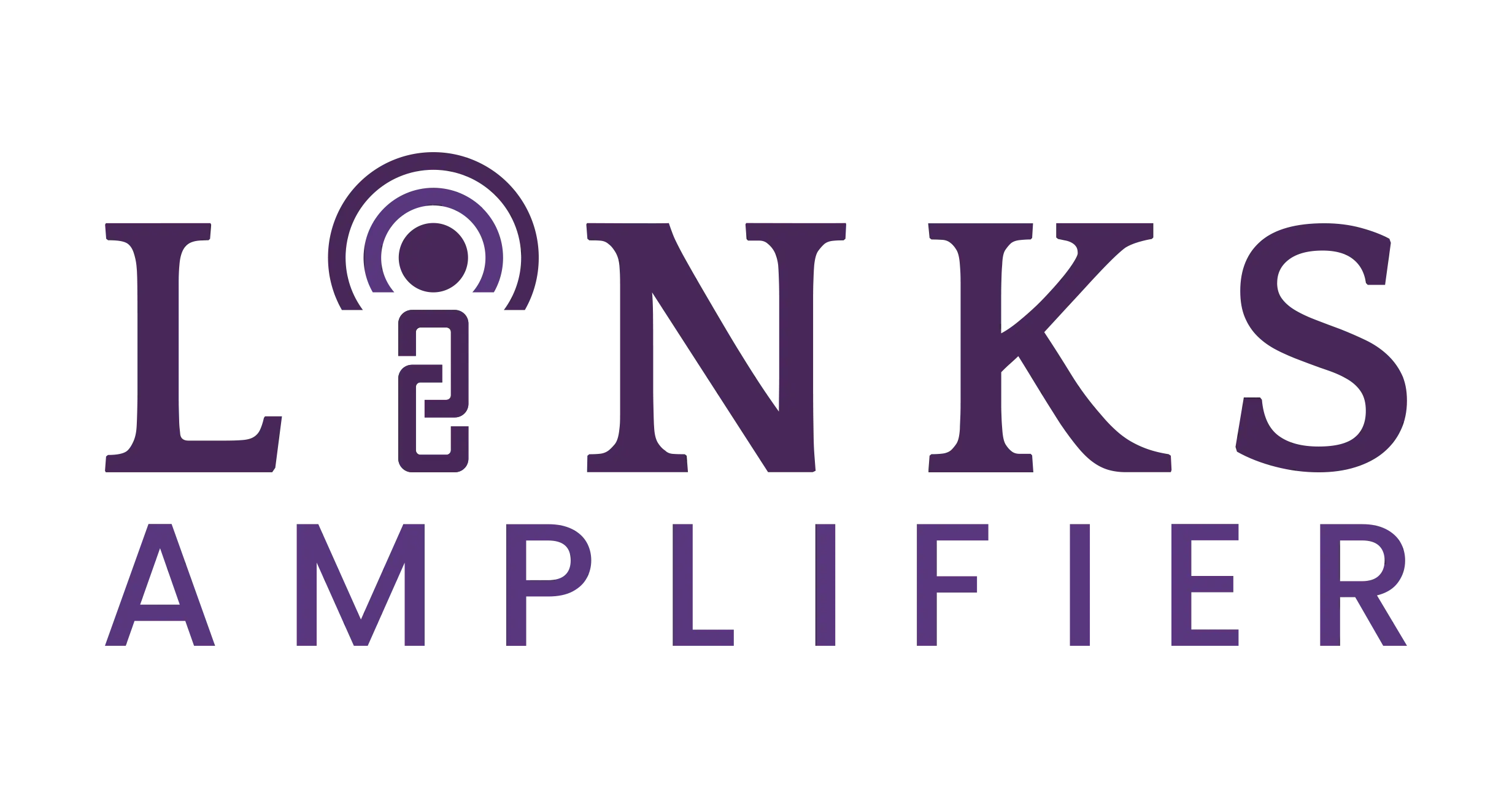The Importance of Link Building in SEO
Link building remains a fundamental aspect of search engine optimization (SEO), playing a pivotal role in determining a website’s ranking on search engine results pages (SERPs). High-quality backlinks are seen as endorsements by search engines, influencing the credibility, visibility, and authority of your website.
Why Link Building Matters
Link building is considered a cornerstone of SEO strategies for several reasons:
Trust and Credibility
Links from authoritative and credible websites significantly enhance your site’s perceived authority. When reputable sites link to your content, it acts as a digital “vote of confidence.” This endorsement not only increases trust among your users but also signals to search engines that your content is valuable and relevant.
PageRank and Ranking Factors
While Google’s PageRank algorithm has evolved over time, determining a webpage’s ranking still hinges on the quality and quantity of backlinks. A strong backlink profile can substantially improve your visibility in search results, making link building essential for achieving competitive rankings in your niche.
Traffic and Brand Visibility
Effective link building transcends mere ranking improvements, boosting website traffic and enhancing brand visibility. Backlinks from high-traffic websites can generate significant referral traffic, attracting a targeted audience that is more likely to engage with your content and convert. Additionally, being featured on authoritative platforms can open doors for further collaboration and growth opportunities.
How Link Building Works
Link building involves acquiring valuable external links to improve your site’s authority and search engine ranking. Here’s how to go about it effectively:
Identifying Target Websites for Link Acquisition
The first step is to identify potential websites that can provide quality backlinks. Focus on sites within your niche that exhibit high authority and relevance. Tools like Moz’s Domain Authority, Ahrefs, and SEMrush can help you assess the quality of these potential link sources. Prioritize targeted outreach to authoritative sites that align with your content and audience.
Strategies for Effective Link Building
A strategic approach is crucial for successful link building. Here are several effective techniques to consider:
1. Content Creation and Promotion
Creating high-quality, informative, and engaging content is foundational to link building success. Promote this content through social media, email outreach, and digital marketing channels to attract backlinks naturally.
2. Guest Blogging
Writing articles for respected websites in your field is a proven method to gain backlinks. This mutually beneficial strategy allows you to showcase your expertise while securing links back to your site.
3. Broken Link Building
Identify broken links on relevant sites and suggest your content as a replacement. This “win-win” strategy helps website owners fix errors while securing valuable backlinks for yourself.
4. Skyscraper Technique
This method involves identifying popular content within your niche, creating something even better, and reaching out to sites linking to the original. Invite them to link to your superior version instead, offering them additional value.
5. Influencer Outreach
Collaborate with influencers in your industry to achieve natural link building. Influencers can share your content, leading to organic backlinks and increased visibility.
6. Relationship-Based Link Building
Build long-term relationships with other website owners, bloggers, and influencers in your industry. This approach fosters genuine connections that can lead to organic link-building opportunities rather than transactional ones.
Best Practices in Link Building
Link building is an essential pillar of SEO that significantly impacts a website’s authority, visibility, and ranking on search engine results pages (SERPs). It’s crucial to adopt effective strategies that align with SEO best practices to succeed. Here’s a comprehensive guide on best practices in link building.
Quality Over Quantity: Prioritizing High-Authority Links
When it comes to link building, focusing on high-quality links is paramount. A smaller number of backlinks from authoritative websites can deliver more value than a larger quantity of low-quality links.
- Why Quality Matters: High-authority links come from reputable, well-established sites that search engines trust. These links not only enhance your credibility but can also significantly improve your rankings.
- How to Identify High-Authority Sites: Use tools like Moz’s Domain Authority, Ahrefs, or SEMrush to evaluate the authority of potential linking sites.
Relevance and Contextual Fit
Links should originate from websites that are relevant to your niche or industry. The contextual fit of a link enhances its value and ensures that the traffic driven from these links is engaged and relevant.
- Benefits of Relevance: Relevant links signal to search engines that your content is associated with trusted sources, boosting your website’s authority.
- Link Placement: Prioritize content that tangentially relates to your niche, which can improve both your SEO and the user experience for visitors referred from these links.
Anchor Text Optimization
Optimizing anchor text is vital for effective link building. It should reflect the keywords you want to rank for while maintaining a natural and varied approach.
- Avoid Over-Optimization: Using the same keyword excessively can appear manipulative to search engines and may lead to penalties.
- Best Practices for Anchor Text: Use a balanced mix of branded, generic, and keyword-rich anchor texts. This approach enhances the link’s relevance and reduces the risk of penalties.
Building a Natural and Diverse Link Profile
A healthy link profile consists of a diverse array of backlinks from various sources, including blogs, directories, and news sites. Including both dofollow and nofollow links helps create a more natural backlink profile.
- Benefits of Diversity: A varied link profile minimizes the risk of being flagged as spammy by search engines.
- Strategies for Diversity: Aim to acquire links from a mix of content types and sources, and regularly assess and update your linking strategy to maintain this diversity.
Monitoring and Maintaining Existing Links
Link building is not just about acquiring new links; it’s essential to monitor and maintain existing ones to ensure their effectiveness.
- Regular Backlink Audits: Use tools like Ahrefs or SEMrush to keep track of your backlink profile. Identify and rectify issues with lost or broken links promptly.
- Engagement with Link Sources: Reach out to websites that have linked to you and maintain these relationships. This can lead to further link opportunities in the future.
Measuring Link Building Success
To refine your SEO strategy, it’s crucial to evaluate the effectiveness of your link building efforts.
Tools and Metrics for Tracking Link Building Efforts
Utilize various tools to analyze your link profile and measure success accurately:
- Tools to Use: Ahrefs, Moz, SEMrush, and Majestic offer insights into your backlink profile, including the number and quality of links.
- Key Metrics: Track the number of backlinks acquired, quality and authority of linking domains, relevance of link sources, and overall changes in your backlink profile.
Analyzing Backlink Profiles
Conduct a thorough analysis of your backlink profile to gauge its strengths and weaknesses.
- Types of Links: Assess the balance of dofollow vs. nofollow links and the diversity of linking domains.
- Geographical Insights: Understand where your backlinks originate, as geographical relevance can enhance local SEO success.
Understanding the Impact on SEO and Web Traffic
Link building’s primary goal is to improve SEO performance and increase web traffic.
- Monitoring SEO Performance: Track changes in your search engine rankings for targeted keywords and overall organic traffic.
- Referral Traffic Analysis: Use Google Analytics to monitor traffic sourced from backlinks, providing insights into user engagement and conversion rates.
Conclusion
Link building is vital for enhancing a website’s visibility, authority, and ranking on search engines. By acquiring high-quality backlinks and following best practices—such as prioritizing quality, ensuring relevance, and maintaining diversity—websites can significantly bolster their credibility and drive targeted traffic.
Remember, link building is an ongoing process requiring strategic planning, ethical practices, and adaptability to the dynamic algorithms of search engines. By embracing these principles, businesses and SEO professionals can leverage link building effectively to achieve their digital marketing goals and thrive in the competitive online landscape.

Jinky Oblianda is the founder of Links Amplifier Digital. She has been building links for businesses and helping agencies for years before slowly starting her own agency.




